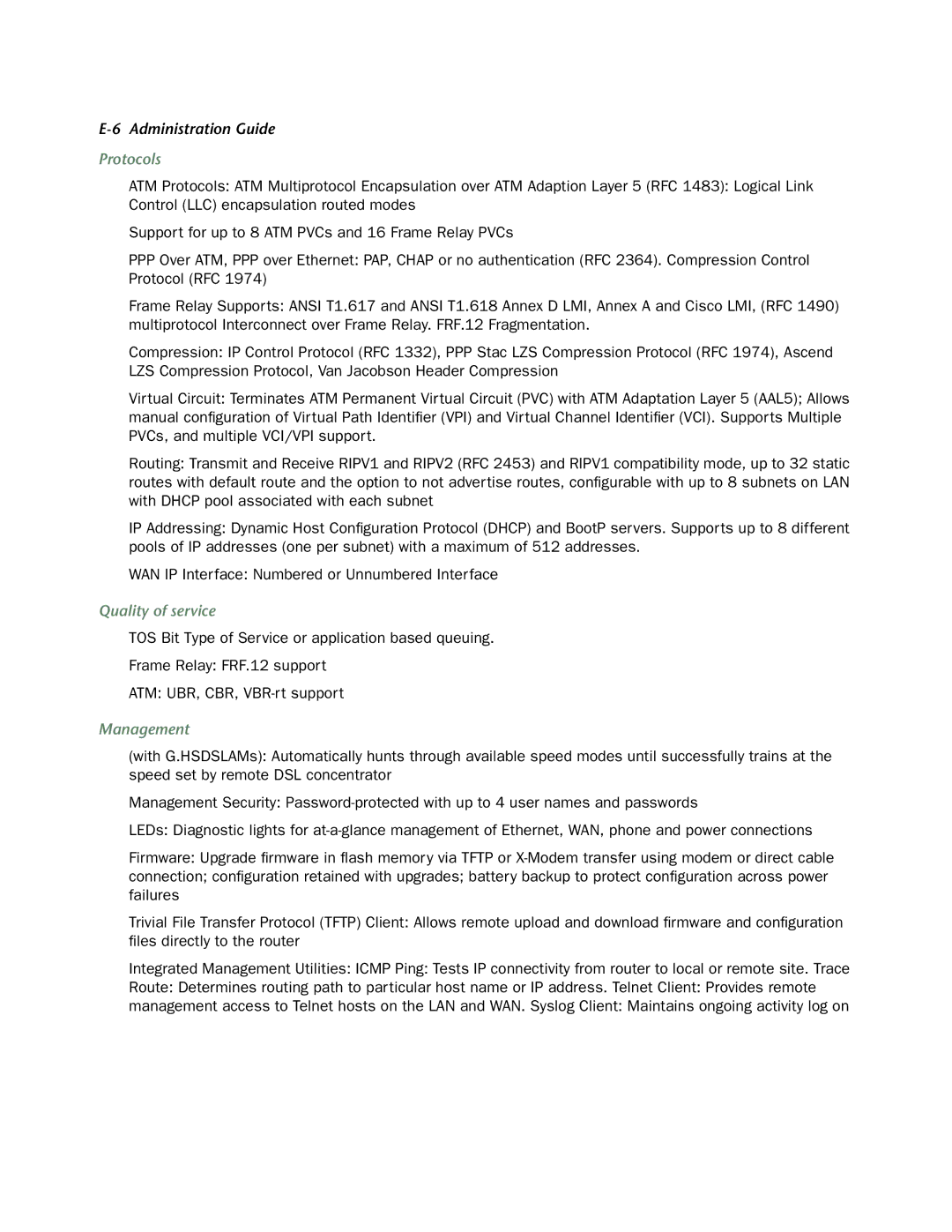E-6 Administration Guide
Protocols
■ATM Protocols: ATM Multiprotocol Encapsulation over ATM Adaption Layer 5 (RFC 1483): Logical Link Control (LLC) encapsulation routed modes
■Support for up to 8 ATM PVCs and 16 Frame Relay PVCs
■PPP Over ATM, PPP over Ethernet: PAP, CHAP or no authentication (RFC 2364). Compression Control Protocol (RFC 1974)
■Frame Relay Supports: ANSI T1.617 and ANSI T1.618 Annex D LMI, Annex A and Cisco LMI, (RFC 1490) multiprotocol Interconnect over Frame Relay. FRF.12 Fragmentation.
■Compression: IP Control Protocol (RFC 1332), PPP Stac LZS Compression Protocol (RFC 1974), Ascend LZS Compression Protocol, Van Jacobson Header Compression
■Virtual Circuit: Terminates ATM Permanent Virtual Circuit (PVC) with ATM Adaptation Layer 5 (AAL5); Allows manual configuration of Virtual Path Identifier (VPI) and Virtual Channel Identifier (VCI). Supports Multiple PVCs, and multiple VCI/VPI support.
■Routing: Transmit and Receive RIPV1 and RIPV2 (RFC 2453) and RIPV1 compatibility mode, up to 32 static routes with default route and the option to not advertise routes, configurable with up to 8 subnets on LAN with DHCP pool associated with each subnet
■IP Addressing: Dynamic Host Configuration Protocol (DHCP) and BootP servers. Supports up to 8 different pools of IP addresses (one per subnet) with a maximum of 512 addresses.
■WAN IP Interface: Numbered or Unnumbered Interface
Quality of service
■TOS Bit Type of Service or application based queuing.
■Frame Relay: FRF.12 support
■ATM: UBR, CBR,
Management
■(with G.HSDSLAMs): Automatically hunts through available speed modes until successfully trains at the speed set by remote DSL concentrator
■Management Security:
■LEDs: Diagnostic lights for
■Firmware: Upgrade firmware in flash memory via TFTP or
■Trivial File Transfer Protocol (TFTP) Client: Allows remote upload and download firmware and configuration files directly to the router
■Integrated Management Utilities: ICMP Ping: Tests IP connectivity from router to local or remote site. Trace
Route: Determines routing path to particular host name or IP address. Telnet Client: Provides remote
management access to Telnet hosts on the LAN and WAN. Syslog Client: Maintains ongoing activity log on
